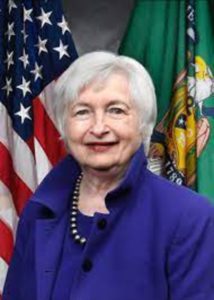CAREER IN FINANCE
If finance and numbers capture your interest and if the first page you open in a newspaper is Finance & Economics, then a career in finance might be right for you. To help you make a decision, we have created this article to give you a comprehensive guide for understanding and pursuing a career in finance in India! Well, in its simplest form, the management of money in any form or by any process is called finance. Now this includes investing, borrowing, budgeting and even saving money in any shape, way, and form.
What do you mean by a ‘career in finance’?
The financial sector is a section of the economy made up of firms and institutions that provide financial services to commercial and retail customers. This sector comprises a broad range of industries including banks, investment companies, insurance companies, and real estate firms which further provides you with various opportunities to have a career in finance.
How is finance different from accounting?
While deciding on a career in either finance or accounting, it is important to understand how the two fields differ. To put it simply:
- Finance deals with the overall management of liabilities and assets for facilitating
financial growth in the future. - Accounting, on the other hand, deals with the day-to-day flow of money going in or out
of a company or institution.
Basically, in finance, you will be responsible for taking care of the big picture in terms of a company’s financial growth whereas in accounting, while still working with money in a
company, you will be looking at a much smaller, day to day picture.
Career Opportunities in Finance
Contrary to popular belief, the field of finance has some of the most exciting and highest-paying jobs of any field. Being paid handsomely while also fulfilling your interest in managing money is one of the biggest selling points of this field. Some of the highest-paying careers in finance are listed below.
INVESTMENT BANKER
An investment banker is an individual who often works as part of a financial institution and is primarily concerned with raising capital for corporations, governments, or other entities. Some of the major employers in this field include:
- Goldman Sachs
- JP Morgan Chase
- Morgan Stanley
- Deutsche Bank
- Bank of America Merrill Lynch
Eligibility: To be eligible for a job as an investment banker:
- You first need to get a bachelor’s degree in the field of finance, some of the
popular degree options include
- Bachelor of Commerce (B. Com) (Hons)
- Bachelor of Arts (BA) in Finance
- Bachelor of Business Administration (BBA) in Finance
- Usually, a bachelor’s degree is enough for you to get an entry-level job in this
field, but if you really want to make it big, obtaining a Master of Business
Administration (MBA) in Finance should be your top priority.
Expected Average Salary: Rs.10 Lakh/annum
CHARTERED ACCOUNTANT
Chartered accountancy involves the management of finances for an entity. This includes
managing financial accounts, budgeting, auditing, business strategy, and taxation. An individual has to take in-depth training and pass multiple exams in various aspects of accounting to earn the title of a chartered accountant. Some major employer of CAs include:
- Kleinfeld Peat Marwick Moerdler
- Ernst and Young
- PricewaterhouseCoopers
- Deloitte
Eligibility: To be a certified CA, you need to clear the following tests in the given order right after your high school or after you have obtained your undergraduate degree.
- CA Foundation course (previously known as CPT or Common Proficiency Test)
- Integrated Course on Information Technology and Soft skills (ICITSS)
- CA Intermediate (previously known as IPCC or Integrated Professional
Competence Course) - Article ship (3-year training)
- Advanced Integrated Course on Information Technology and Soft Skills (AICITSS)
- FC (Final course)
Expected Average Salary: Rs.7.5 Lakh/annum
CHARTERED FINANCIAL ANALYST
A Chartered Financial Analyst (CFA) is an internationally recognized professional qualification that tests and certifies the expertise and professionalism of financial analysts provided by the CFA Institute. Some major employers of CFAs include:
- JP Morgan Chase
- UBS
- Bank of America Merrill Lynch
- RBC
- HSBC
- Wells Fargo
- Citigroup
Eligibility: To be eligible to be a charter holder, you need to first apply to the CFA program for which you need to meet one of three requirements:
- Have a bachelor’s degree
- Be in the final year of an undergraduate program
- Have a combination of at least 4 years of full-time work experience and higher
education
After being enrolled in the program, you need to clear three different levels of tests, where each
test will focus on a different aspect of investing.
- Level 1: Focuses on investment tools, testing your knowledge of ethical and
professional standards - Level 2: Focuses on asset valuation, testing your ability to apply standards to
situations that analysts face - Level 3: Focuses on portfolio management, testing your ability to apply standards
in regard to portfolio management and compliance
And finally, once you complete the aforementioned steps, you can - Start gaining work experience
- Start preparing reference letters to be submitted to the CFA Institute
- Apply for you CFA Charter
Expected Average Salary: Rs.6.8 Lakh/annum
PORTFOLIO MANAGER
A portfolio manager is an individual or group of individuals responsible for investing the funds of a joint, exchange-traded, or closed-end fund, executing the investment policy, and handling the day-to-day trading of portfolios. Some major employers include:
- BlackRock
- The Vanguard Group
- UBS
- State Street Global Advisors
- Allianz
- JP Morgan Chase
- Goldman Sachs
Eligibility: The educational requirements to be a Portfolio Manager include:
- Bachelor’s degree in the field of Finance, Commerce, or Economics. BBA, BBM, and BBS
are popular degrees to look out for. - MBA in Portfolio Management, MBA in Finance or MBA in Investment Banking
Expected Average Salary: Rs.10.5 Lakh/annum
Is a career in finance stressful? Is it worth it?
Let us call a spade a spade, a career in finance is a stressful one. Your job in this field will require long hours of sometimes monotonous work. However, these jobs usually contain the highest-paid positions in a company.
Plus, the scope and job security that come in this field are unmatched. According to the US Bureau of Labour Statistics, employment in business and financial operations occupations is projected to grow 5% from 2019 to 2029, faster than the average for all occupations, adding about 476,200 new jobs.
Financial Role Models
Let’s talk about two prominent female role models in the field of finance.
| JANET YELLEN “If there is a job that you feel passionate about, do what you can to pursue that job; if there is a purpose about which you are passionate, dedicate yourself to that purpose.” 71-year-old Janet Yellen is a renowned and highly-regarded American economist who has held powerful positions in the most influential finance organizations in the country. Presently, she is the Chair of the Board of Governors of the Federal Reserve. Janet has been associated with the Federal Reserve since 2010 and was nominated as the Chair by erstwhile President Barack Obama. Janet is the first woman in history to hold this position. Before the Federal Reserve, Janet was the President and CEO of the Federal Bank of San Francisco, Chair of the White House Council of Economic Advisors under erstwhile President Bill Clinton, and business professor at UC Berkeley’s Haas School of Business. |
 |
 |
SHIKHA SHARMA “The more (number of) learning curves I climb, the more (number of) complex and novel situations I put myself in; the more likely that I will continue to remain relevant.” India’s own Shikha Sharma has been the CEO and MD of Axis Bank since 2009. A leader of change beyond compares, Shikha’s most significant work at the bank includes strengthening its retail lending franchise, and expansion of investment banking and advisory capabilities and payment products, making the bank more relevant and contemporary. Under her leadership, the bank’s stocks gained over 90 percent. A mother of two, Shikha started her career in the finance industry with ICICI Bank in 1980. Before Axis Bank, she was the MD & CEO of ICICI Prudential Life Insurance. |
To conclude, globalization, a growing economy, and a complex tax and regulatory environment are expected to continue to lead to strong demand for accountants and auditors. In addition, increasing usage of data and market research in order to understand customers and product demand, and to evaluate marketing strategies, will lead to the growing demand for market research analysts. So, a career in finance is absolutely worth it. It might appear tough at first, but it pays for all the initial trouble quite well in the long run.
Thank you for reading!







